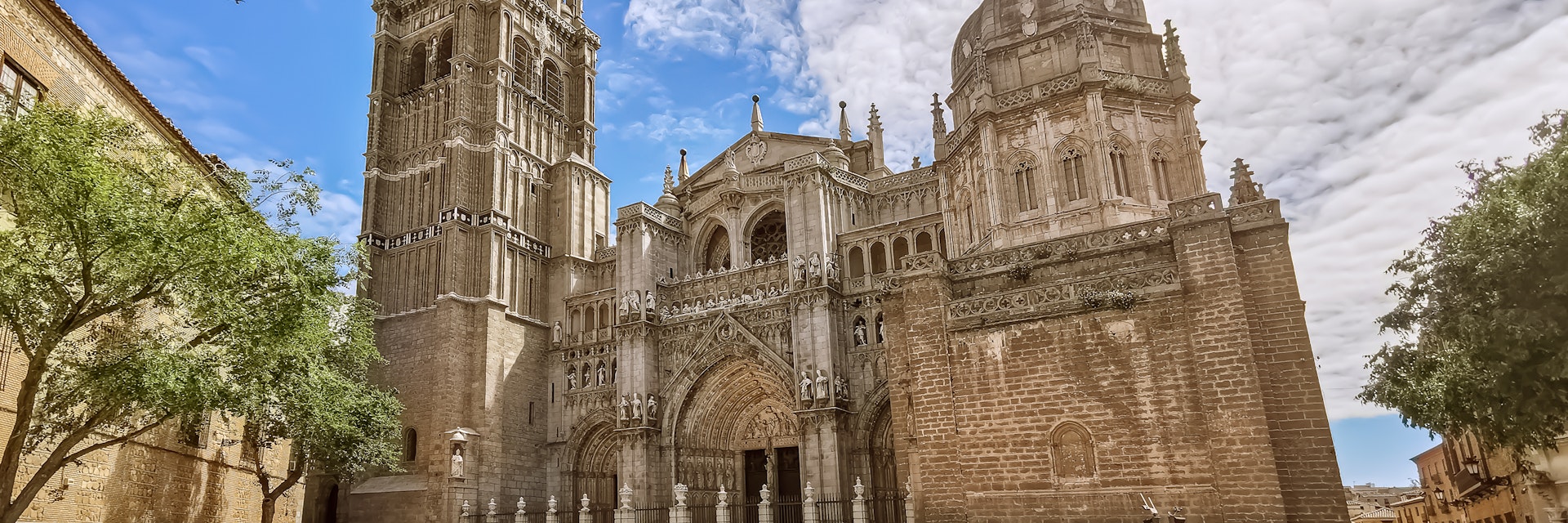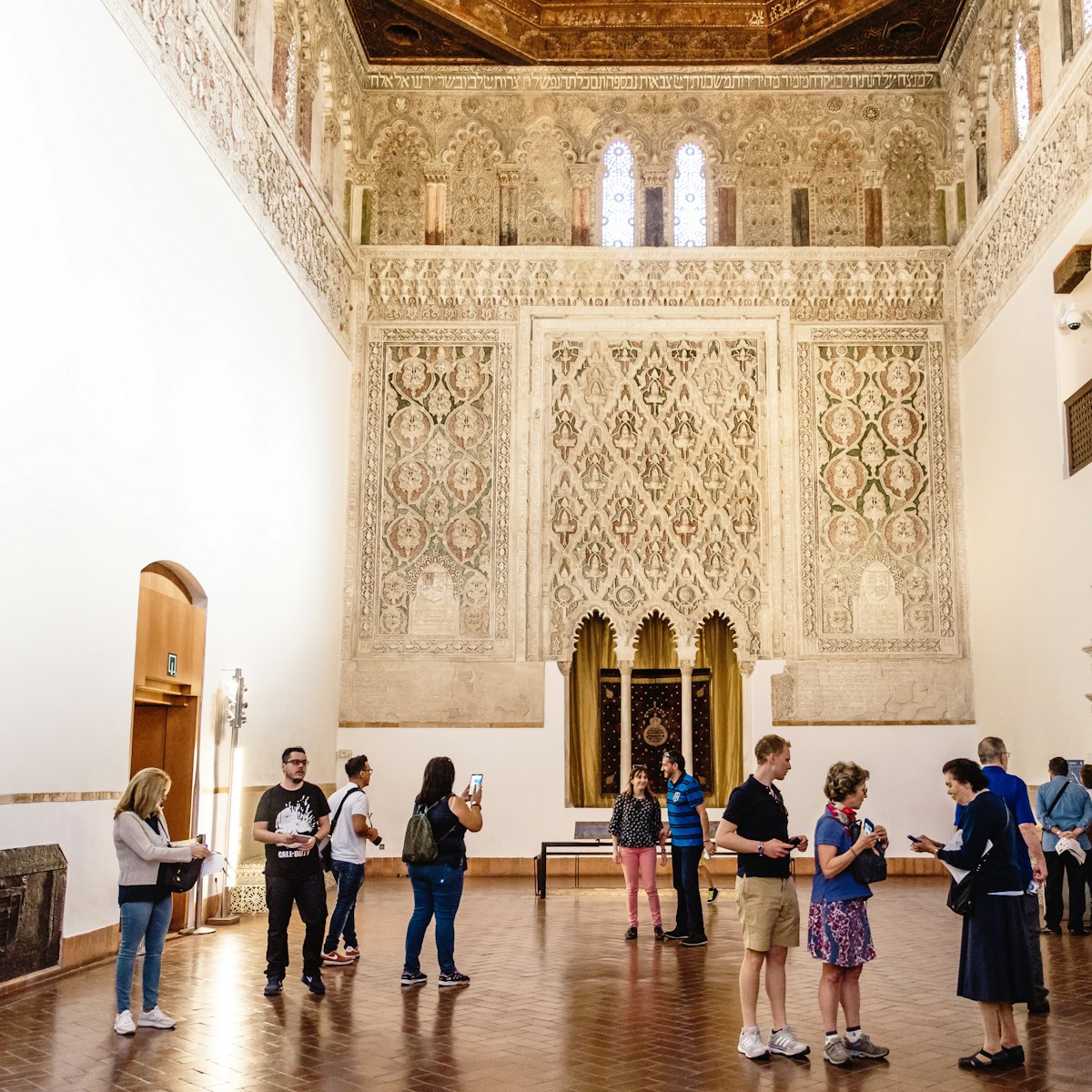Toledo's illustrious main church ranks among the top 10 cathedrals in Spain. An impressive example of medieval Gothic architecture, its enormous interior is full of the classic characteristics of the style, rose windows, flying buttresses, ribbed vaults and pointed arches among them. The cathedral’s sacristy is a veritable art gallery of old masters, with works by Velázquez, Goya and – of course – El Greco. Admission also gives access to the nearby Museo de Tapices y Textiles de la Catedral.
From the earliest days of the Visigothic occupation, the current site of the cathedral has been a centre of worship. During Muslim rule, it contained Toledo's central mosque, converted into a church in 1085, but ultimately destroyed 140 years later. Dating from the 1220s and essentially a Gothic structure, the cathedral was rebuilt from scratch in a melting pot of styles, including Mudéjar and Renaissance. The Visigothic influence continues today in the unique celebration of the Mozarabic Rite, a 6th-century liturgy that was allowed to endure after Cardinal Cisneros put its legitimacy to the test by burning missals in a fire of faith; they survived more or less intact. The rite is celebrated in the Capilla Mozarabe at 9am Monday to Saturday, and at 9.45am on Sunday.
The high altar sits in the extravagant Capilla Mayor, the masterpiece of which is the retablo (altarpiece), with painted wooden sculptures depicting scenes from the lives of Christ and the Virgin Mary; it's flanked by royal tombs. The oldest of the cathedral's magnificent stained-glass pieces is the rose window above the Puerta del Reloj. Behind the main altar lies a mesmerising piece of 18th-century Churrigueresque (lavish baroque ornamentation), the Transparente, which is illuminated by a light well carved into the dome above.
In the centre of things, the coro (choir stall) is a feast of sculpture and carved wooden stalls. The 15th-century lower tier depicts the various stages of the conquest of Granada.
The tesoro, however, deals in treasure of the glittery kind. It's dominated by the extraordinary Custodia de Arfe: with 18kg of pure gold and 183kg of silver, this 16th-century processional monstrance bristles with some 260 statuettes. Its big day out is the Feast of Corpus Christi, when it is paraded around Toledo's streets.
Other noteworthy features include the sober cloister, off which is the 14th-century Capilla de San Blas, with Gothic tombs and stunning frescoes; the gilded Capilla de Reyes Nuevos; and the sala capitular (chapter house), with its remarkable 500-year-old artesonado (wooden Mudéjar ceiling) and portraits of all the archbishops of Toledo.
The highlight of all, however, is the sacristía (sacristy), which contains a gallery with paintings by masters such as El Greco, Zurbarán, Caravaggio, Titian, Raphael and Velázquez. It can be difficult to appreciate the packed-together, poorly lit artworks, but it's a stunning assemblage in a small space. In an adjacent chamber, don't miss the spectacular Moorish standard captured in the Battle of Salado in 1340.
An extra €2.50 gets you entrance to the upper level of the cloister and the bell tower, which offers wonderful views over the centre of historic Toledo.





